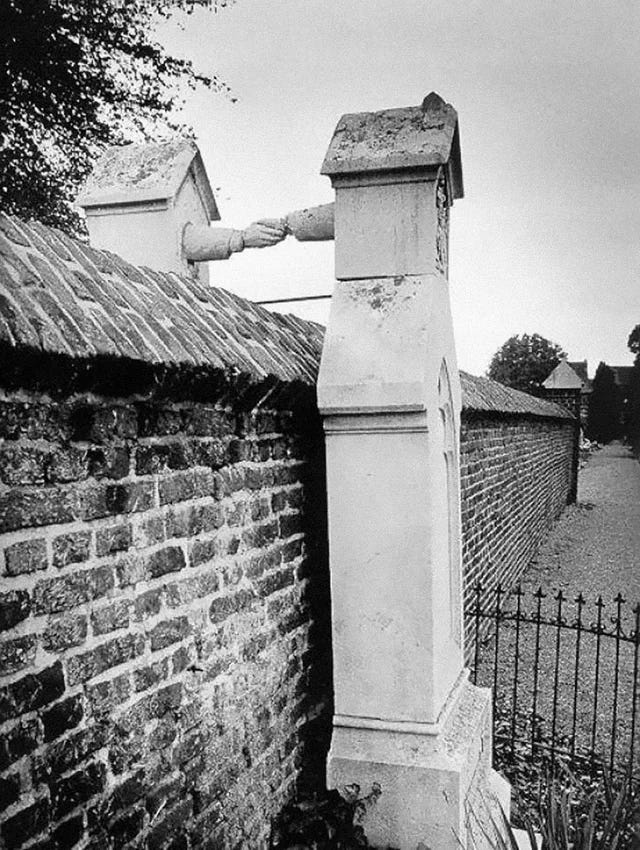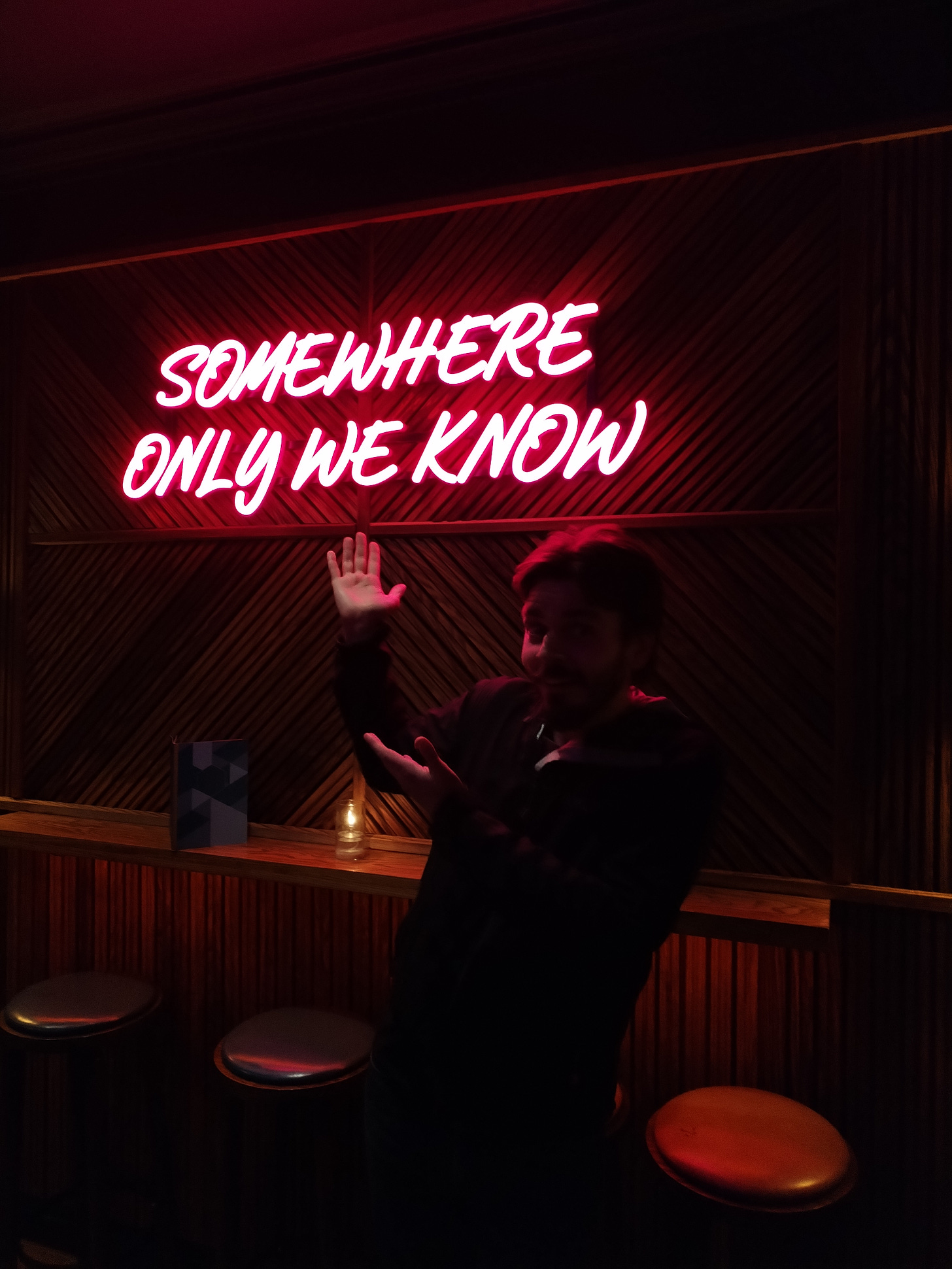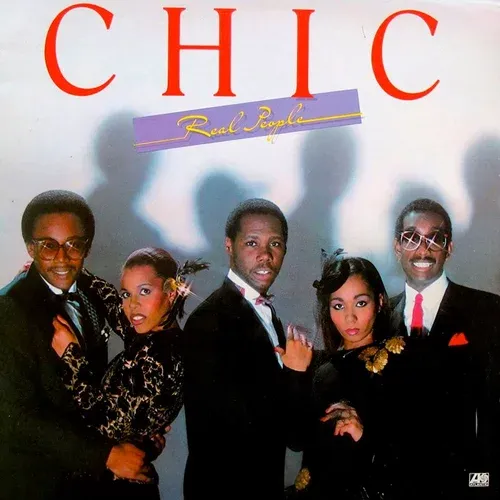Tape 134: Writing About Real People
Let’s start with the plug, because this week’s Tape is at least vaguely connected to it. Those readers who’ve been enjoying the Mr Fruit Salad show on Youtube over the last couple of weeks might be interested to know that I’ve put together a little bonus feature for the Go Faster Stripe store in the form of an exclusive audio commentary, which you can purchase as a download here for just £3. It includes some exclusive insights into the making of the show, into how Ben Target and Alex Hardy and I went about constructing it, the tragic story of the unfinished Mr Fruit Salad TV Show, and much more! If you enjoyed the show, I really hope you enjoy the commentary!
For this week’s Tape I wanted to talk about another late “amendment” to the show itself, which I think warrants some discussion in a newsletter as I know there’s lots of other writers who read this who might find it interesting. It’s my thoughts on the idea of writing about real people.
As I discuss in the commentary, the specificity of Mr Fruit Salad himself and what he was supposed to represent is very rooted in real things that happened to me in my life that were hard to process, and which I ended up almost completely removing from the finished show itself, so I rarely talk about specific things that happened to me. I decided that the way the show felt for the audience was more important than the specific experiences in my life that I was trying to process. I picture the show as being translucent, like frosted glass – you can see something on the other side of it, but it’s not quite clear what it is.
I made this decision because I’ve always been more interested in presenting an audience with surprising images than I have in telling them true stories. Even back when my shows were much more rooted in autobiographical storytelling, I still had to dress them up in visually odd framing devices – my head coming out of a box, me tying myself up in a giant web, and so on, because just telling the audience true things about myself felt unsatisfying to me. At the same time, I’m not a clown or a character comedian who presents things as purely imaginary or absurd – the shows I make are a funny blend of the real and the imaginary, and finding that line has been a tricky thing to walk that I’ve slowly got better at.
All that said, this used to be something that was happening at a subconscious level without my giving it much active thought, so when I did make the decision to talk about anything founded on reality, it never occurred to me that as an artist I might have some responsibility to disguise elements of the truth. There’s a bit in the Mr Fruit Salad show where I talk about my grandma’s funeral – a mostly true story focused on how the event made me feel. Part of what makes the story funny, though, is my characterisation of my Uncle John, who I depict as a notorious grump who says things like “You don’t have to have fun, you have to work for your entire life and then you have to die.” My uncle did say this once, because he was getting exhausted by someone else’s forced bonhomie, and I thought it was so funny I wanted to put it into the funeral story to lend it some extra levity. But to really carry weight, that one sentence had to end up representing more or less the entirety of the character of Uncle John within the show, painting him as some sort of intrinsically misanthropic prophet of doom whose entire essence was contained in those words. When we write about people, we forget that the things we choose to say about them become their entirety – we know there’s more to them than that, but the audience doesn’t.
My uncle is actually nothing like this. He’s a very funny, kind, generous, outgoing person, and at the time I made the show it didn’t occur to me that using his real name to represent this imagined, grumpy character founded on one thing he said once was unfair, and limiting.

I was going to illustrate this Tape with a photo of me and my uncle as a tribute to the real person, but then I felt that kind of goes against the message of protecting people’s right to tell their own story and have some privacy in their life, so instead here’s the cover of Chic’s 1980 album “Real People,” which is quite good.
A couple of years ago someone in my family wrote something about our family using everyone’s actual names, and it caused a lot of hurt. The specifics of what this was and why it happened and what it meant to people are private and need not be delved into here, but suffice to say, it meant that people in my family had the deeply odd experience of reading reviews in national newspapers that talked frankly and scathingly about the flaws in their own personalities, using their actual names. I found it all deeply surreal, and it fundamentally changed the way I feel about the idea of writing about the truth. As I said, because I’ve always been the kind of artist who naturally ends up distorting reality in my work anyway, it never occurred to me to change the odd name or protect the odd fact here or there. In my mind, the occasional grain of truth lent the work more authenticity beneath all the weirdness, and I had never realised that leaning on truth could cause harm. After what my family experienced, I promised to change my approach to the whole subject.
Of course, writers write about things that happened to them, or that they heard about. We all write from our experience and we collect stories and ideas we want to explore creatively in some way. But I don’t believe that those stories belong to us, and I do think we have a duty to tell them in a way that doesn’t cause harm to the people who inspired them. I often used to name characters in my scripts after people I knew, because I thought, hubristically enough, that it was a “nice tribute.” Sometimes I would do this with characters that owed some sort of debt to a real person, and more often I would do it with characters who were works of pure imagination and had nothing to do with the person I’d named them after. After my family’s experience, I realised that any usage of truth in a work feels, to a real person, like an invitation to see themselves in it, which can be hurtful and confronting, even if you didn’t intentionally use anything real in the construction of the character. The stories we choose to tell, and the relationship we construct between them and reality, has real potential to harm, and writers have to navigate that potential responsibly.
All this is a lengthy build-up towards saying that, of course, I’m hugely annoyed with myself that when performing the Mr Fruit Salad show again last year for the first time since 2019, muscle memory from months of performing that show kicked in and I said “Uncle John” when it got to that story, having planned to rename the character for this updated version of the show. I was going to rename him in order to draw a line between the real person – a kind, generous soul who once said a funny thing I wanted to draw on – and the figure in the show, a stentorian pessimist who believes everything is awful. I slipped up and am annoyed about it because I’ve made real efforts to improve my awareness of all these things since making that show.
Nobody’s perfect, and we all make mistakes, and we writers do have a pathological need to use our various platforms to “tell our story,” but I do think if all of us worked hard on increasing our awareness of the impact of that it would do a lot of good. I’ve seen plenty of shows over the years where people have used the stage to air grievances about people who hurt them, and while I’m sure it’s been cathartic for them, and is often cathartic for the audience as well, I’ve often ended up thinking “There is someone out there who has a different version of this story to tell, and they don’t get to tell it, and they don’t get an opportunity to reply,” and it often leaves me feeling uncomfortable. These days, when I have something real or true I want to explore in my writing, I tend to start exploring it as frankly as possible in a private first draft in order to figure out what it is about the idea that actually interests me. Having isolated that, I then consciously set myself the task of rewriting and disguising and changing the truth in a way that preserves that centre for me and maintains my own connection to the idea. The big thing I’ve noticed is that it’s made my writing much, much better. It’s kinder, too.
Anyway, big love to Uncle John, you’re an absolute dude.
A New Thing In Comedy – Regular readers will know this section is usually called “A Cool New Thing In Comedy” but I occasionally remove that word when the news I want to draw attention to is bad. After a year attempting to secure its future, VAULT Festival is closing down for good, and I’m a bit heartbroken. I developed three shows I’m very proud of initially out of the space offered to me by VAULT to make something new. The first of those shows gave me a career, and I may well not be doing what I do today without its influence. I don’t think there’s anything to be done about it, but if enough people vent their outrage and reflect on the feelings it leaves them with, perhaps one or all of us will find our way towards one day building something that can take its place. Really, really sad.
What’s Made Me Laugh The Most – This.
Book Of The Week – Currently reading Priests De La Resistance! by Fergus Butler-Gallie, which is a history of various priests who fought against fascism in the 20th century. Not completely sure why, to be honest, but it’s interesting. Learned about a couple in Holland in the 1880s who had to be buried in different cemeteries because one was Protestant and the other was Catholic, so they had their graves built like this, which obviously made me cry my eyes out:

Album Of The Week – Elevator Angels by CocoRosie. This is an EP on which CocoRosie celebrate their 20th anniversary by performing acoustic covers of various songs of theirs from the intervening two decades. I wasn’t expecting much from it, but it’s absolutely beautiful. They often dial up the weirdness and the effects on their studio albums, but this EP is a good reminder that they’re often most affecting when they keep things simple.
Film Of The Week – Watched Dune: Part I this week in order to prepare for Dune: Part II. It’s obviously great, but you already knew that, probably. It also inspired this sketch, which I’m told is my best work:
That’s all for this week! Let me know what you thought and, as ever, if you enjoyed the newsletter enough to send it to a friend or encourage others to subscribe, I’d really appreciate it. Take care of yourselves until next time, and all the best,
Joz xx
PS I have no plans to actually charge for this newsletter or put it behind a paywall, but I do write it for free and the comedy and media industries are in a perilous state right now, especially for freelancers. If you value the Therapy Tapes and enjoy what they give to you, and want to support my work and enable me to keep writing and creating, you can make a one-off donation to my Ko-Fi account, and it’s very gratefully appreciated.
PPS Thanks to Stevie Martin for introducing me to a very cool secret bar called Be At One, it was so exciting to discover this cool new spot that only we know:

